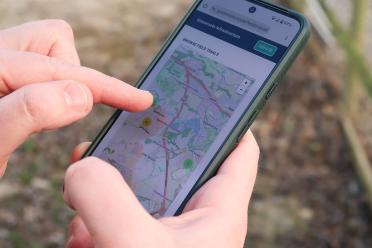Efficient sharing of data has clear benefits.
The right tools and platforms allow researchers to share, access and use diverse datasets - improving research outputs, collaboration, and reproducibility while reducing time spent on unnecessary duplication of work.
And sharing can have real-world effects on large, complex issues. The difficult problem of feeding the global population during the climate crisis could be enhanced by pooling data and resources.
Programmes such as Grassroots also allow for standardisation and easy searchability. FAIR data – which stands for findable, accessible, interoperable, and reusable – is a cornerstone of modern biology.
“When I began working on wheat field trials, we used physical data in book form which was hard to search and lacked coherence. Data from Grassroots is searchable, viewable on the internet, and exportable,” says Simon.
He explains the data can be broken down to view as a researcher needs it, including into statistics and visual heat maps of fields.
“For example, if you wanted to breed for taller wheat, Grassroots can provide you with a heat map which would match taller growth to particular seeds or applied treatments,” he says.








